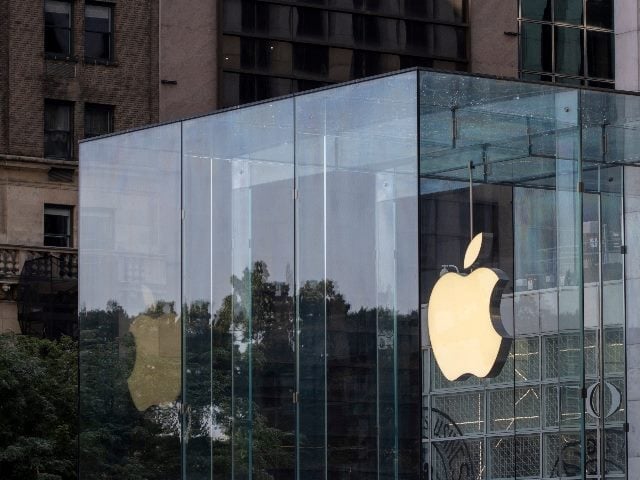The Gist
- AI enhances accessibility. Siri and iOS 18 will incorporate advanced AI, improving accessibility with intuitive interactions and reducing the need for manual adjustments.
- Strategic AI partnerships. Collaboration with OpenAI boosts Apple's AI capabilities, making Siri more resourceful and personal, despite concerns from competitors like Elon Musk.
- Expanding communication tools. iOS 17 introduces Rich Communication Services, transforming text messaging into a richer, more interactive experience for users.
At this year’s World Wide Developers Converence (WWDC), Apple unveiled a series of groundbreaking advancements that are set to significantly impact customer experience (CX) and marketing. Key among these was the introduction of Apple Intelligence, an AI and machine learning initiative designed to enhance personalization, improve customer interactions and create more engaging marketing strategies.
In addition to these AI-driven innovations, Apple announced new capabilities in iOS 17, the adoption of Rich Communication Services (RCS), and updates to its Apple Vision Pro, all of which promise to impact businesses and consumers alike.
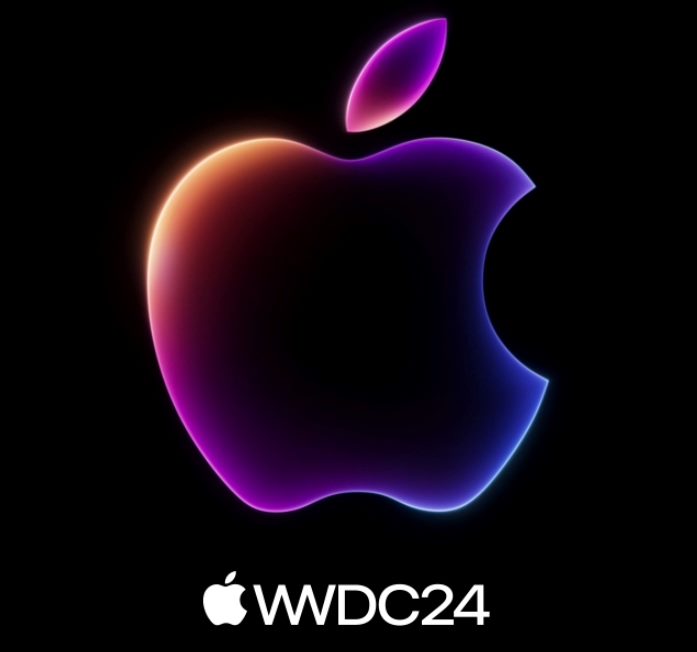
Apple Intelligence: The Future of Personal Intelligence
Apple's announcement of Apple Intelligence underscores its commitment to embedding AI into all of its products, offering what it calls "personal intelligence." This initiative allows developers to use SDKs to add AI functionality to iOS and Mac apps, significantly enhancing the capabilities available to marketers and CX professionals.

In addition, AI integration runs from personalized Genmojis to an AI-enhanced Siri, who is now able to answer questions about the user’s schedule, email, and other personal details, thanks to a partnership with ChatGPT creator OpenAI, a collaboration that infuriated Elon Musk to the point where he threatened to ban Apple devices in Tesla vehicles.
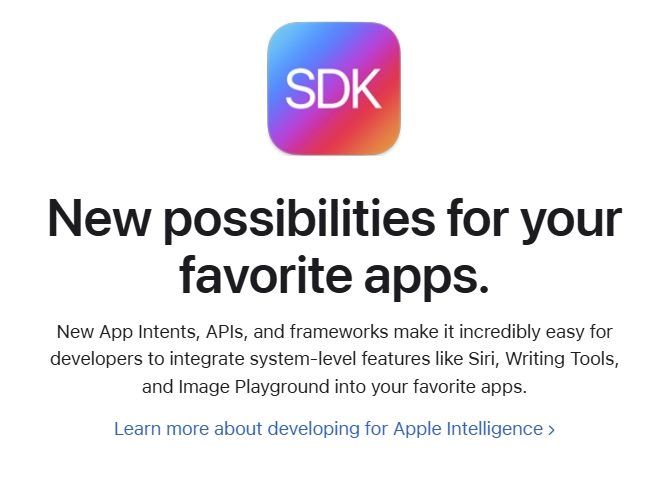
Apple's approach to AI emphasizes its dedication to enhancing and improving customer experiences rather than simply adopting technology for its own sake. This commitment is evident in several key areas:
-
Customer-Centric Innovation: Its announcement of Apple Intelligence highlights its focus on embedding AI into all its products to offer "personal intelligence." By integrating AI deeply into iOS and Mac apps, Apple provides developers with the tools to create more personalized and intuitive user experiences. This goes beyond mere technological advancement, aiming to enrich the daily interactions users have with their devices.
-
Partnerships for Enhanced Capabilities: The partnership with OpenAI to enhance Siri's capabilities is a testament to Apple's dedication to improving its AI services. This collaboration allows Siri to answer questions about the user’s schedule, email, and other personal details, making the virtual assistant more useful and relevant to users’ needs. Such enhancements show Apple’s commitment to using AI to provide practical and beneficial features for its customers.
-
Personalized User Experiences: Apple Intelligence leverages AI to analyze user behavior and preferences, delivering personalized recommendations that help marketers tailor their messaging and offers. This personalized approach increases engagement and conversion rates, ensuring that users receive content and offers that are most relevant to them. This personalization is not just about sophisticated technology but about creating meaningful connections with users.
-
Improved Communication Channels: Improvements in predictive text and autocorrect, powered by advanced AI models, enhance customer communication channels. These enhancements lead to more accurate and efficient responses, improving customer satisfaction and streamlining interactions. By focusing on the practical benefits of AI, Apple has once again ensured that its users have a smoother and more pleasant experience.
-
Ethical Use of AI: Apple’s AI integration is designed with user privacy and data security in mind. Many of Apple’s AI features process data on-device, reducing the risk of data breaches and building trust with consumers. This focus on ethical AI use reinforces Apple’s commitment to responsibly enhancing customer experiences.
Apple’s embrace of AI technology through Apple Intelligence is driven by a clear objective: to enhance and improve the customer experience. By focusing on practical applications, personalized interactions, and ethical use, Apple demonstrates its dedication to using AI not just as a technological advancement, but as a means to make its products more helpful, engaging and secure for its users.
Related Article: Apple's AI Moment Is Coming. It May Not Be Smooth
Personalized Experiences With iOS 17
Apple introduced several features in iOS 17 aimed at creating more personalized user experiences. The new Contact Posters and Live Voicemail allow users to customize their call interactions, opening new avenues for marketers to create memorable and engaging customer interactions. Additionally, the enhanced NameDrop and AirDrop features simplify the sharing of contact information and content, making it easier for businesses to connect with their audience and seamlessly distribute marketing materials.
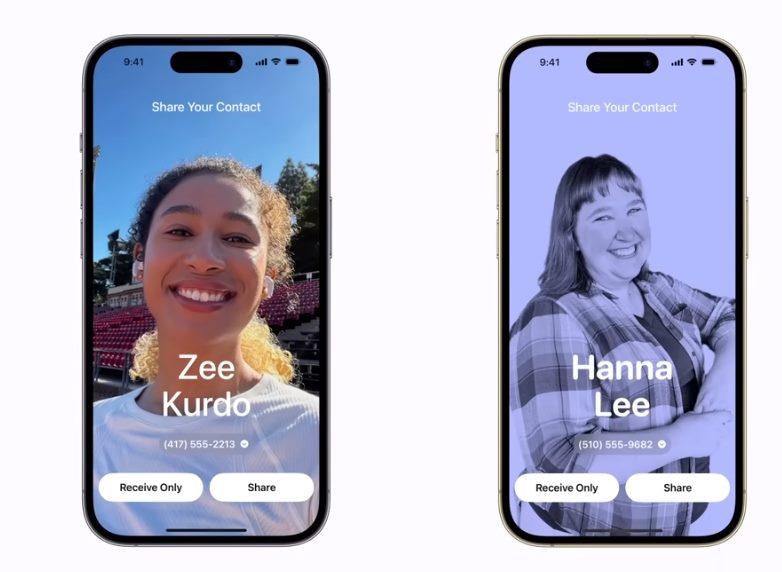
For marketers, the introduction of NameDrop and enhancements to AirDrop can have significant implications. Brands can use NameDrop at conferences or trade shows to seamlessly share contact information with potential clients or partners. For example, a brand representative could instantly share their digital business card with attendees, facilitating follow-up and fostering connections.
During brand-hosted events or in-store experiences, AirDrop offers an innovative way to distribute promotional materials, exclusive content, or special offers to attendees. Brands could, for instance, offer discounts or product information directly to customers' devices when they are within proximity. Additionally, AirDrop can be used to share engaging multimedia content such as videos, brochures, or product demos with customers during interactive experiences or pop-up events, significantly enhancing the overall customer experience.
While these features are primarily designed for personal use, their creative application within specific marketing contexts presents brands with new opportunities to engage their audience in innovative ways.
Related Article: Tim Cook's AI Moment: A Pivotal Shift at Apple
Enhanced Messaging Capabilities
The updated messaging capabilities in iOS 17, including Stickers, Live Stickers, and more importantly, the adoption of RCS messaging standards, provide brands with innovative tools to engage customers through interactive and visually appealing content and make communication with non-iPhone users more seamless.
Inderpal Singh Mumick, CEO at Dotgo, a Gupshup company, told CMSWire that Apple’s embrace of Rich Communication Services (RCS) business messaging is a game-changer. RCS is a communication standard for SMS, MMS, and calling that enhances text messages to resemble dedicated messaging apps such as WhatsApp, Telegram or Facebook Messenger. Aside from the impact this will have on enhancing messaging for iPhone users, Mumick said this move toward messaging protocol standardization “will help to build better interoperability and a more consistent experience across devices.“
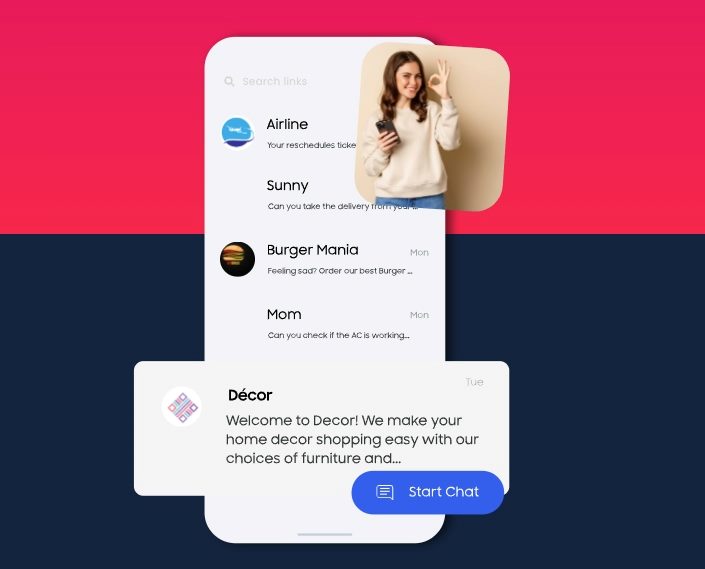
Adopting RCS on Apple devices opens up new business opportunities for enhanced communication. This includes branded messaging, verification, encryption, two-way chat, and recognizable sender IDs, all of which contribute to more dynamic and secure business messaging.
“RCS transforms marketing for brands by enabling rich media experiences right within the messaging app on a customer's phone,” said Mumick. “Rather than plain text SMS, brands can send eye-catching visuals like high-resolution photos, videos, audio clips, GIFs and even rich cards with carousels and actionable buttons.” Mumick suggested that this allows marketing to become more dynamic, interactive and engaging. “Each RCS marketing message can be coupled with intuitive call-to-action buttons like ‘Learn More’ or ‘Buy Now’ to drive desired customer behaviors.”
Spatial Computing With Apple Vision Pro
Apple Vision Pro’s spatial computing capabilities present a new dimension for marketing, opening up opportunities for brands to create highly immersive and interactive experiences. This can revolutionize customer engagement through virtual try-ons, interactive product demos and immersive brand storytelling.
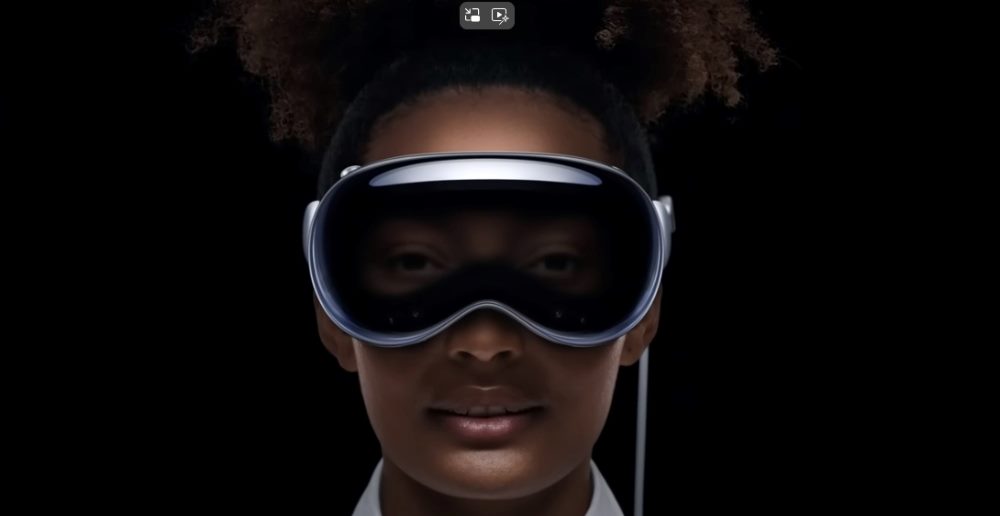
Enhanced collaboration tools, such as FaceTime with spatial audio and digital Personas, enable more lifelike and engaging virtual meetings, improving team collaboration and customer interactions.
Additional Marketing and CX Takeaways
Apple’s WWDC announcements this year bring several key innovations that marketers and customer experience professionals can leverage to enhance their strategies. Additional announcements from WWDC and their implications for marketing and CX include:
-
Enhanced Customer Interaction – Features like Voice Control and Visual Lookup leverage AI to make interactions more intuitive and accessible. Brands can use these capabilities to create seamless and engaging customer experiences, such as voice-activated shopping or visual search for products.
-
Context-Aware Marketing – Apple’s location services and activity recognition capabilities provide context-aware suggestions, enhancing local marketing efforts. Businesses can send targeted promotions and offers based on real-time location and user activities, making marketing content more relevant and engaging.
-
Customer Engagement and Retention – Health and wellness insights from features like mental health logging and vision health tracking provide valuable data for personalized wellness programs and product recommendations.
Final Thoughts
Apple's announcements at WWDC 2024 underscore the company's commitment to revolutionizing customer experiences through cutting-edge technologies such as AI, machine learning and spatial computing.
By deeply integrating AI across products for personalized intelligence, enhancing messaging with rich media capabilities, and enabling immersive virtual experiences, Apple has provided marketers and CX professionals with powerful new tools to drive engagement, build trust and foster meaningful connections with customers in unprecedented ways.
